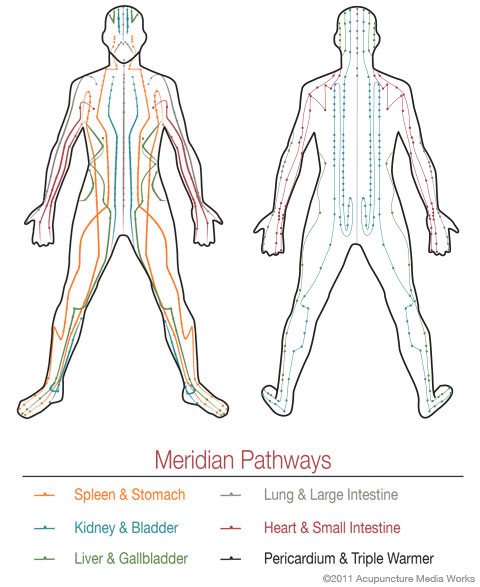Acupuncture for PMS in combination with Chinese herbs offers a more holistic and non-invasive approach compared to approaches used in Western medicine.
In treating PMS, Western medicine recommends diet and lifestyle changes coupled with medications that manipulate the levels of progesterone and estrogen (i.e. birth control pills), tranquilizers and/or antidepressants (for nervousness, anxiety and depression) that affect mood and emotions.
Although prescription medications can sometimes bring immediate relief, they unfortunately do not address the underlying cause of PMS, and they can cause unwanted side effects that may mimic PMS symptoms.
Acupuncture for PMS: A Natural Approach
In treating PMS, Western medicine recommends diet and lifestyle changes coupled with medications that manipulate the levels of progesterone and estrogen (i.e. birth control pills), tranquilizers and/or antidepressants (for nervousness, anxiety and depression) that affect mood and emotions.
Although prescription medications can sometimes bring immediate relief, they unfortunately do not address the underlying cause of PMS, and they can cause unwanted side effects that may mimic PMS symptoms.
In 1997, the National Institute of Health (NIH)1 issued a consensus report that suggested acupuncture is effective in the treatment of menstrual cramps, and other symptoms associated with PMS.
Acupuncture can address PMS symptoms naturally, without medication, by restoring balance and harmony, both physically and emotionally.
In Chinese medicine, the root cause of PMS is usually an imbalance or blockage of Qi, (pronounced “chee”) or vital energy, and blood within specific organ and meridian systems (see diagram below). When Qi and blood become imbalanced or blocked, symptoms and signs associated with PMS will appear.

The role of an acupuncturist is to investigate the underlying causes leading to PMS symptoms. After a thorough diagnostic evaluation to determine what organ and meridian systems are out of balance, they treat PMS symptoms according to each individual patient’s imbalances and concerns.
By inserting fine, sterile needles into specific points on the body, an acupuncturist is able to stimulate and activate the movement of Qi and blood. When Qi and blood begin to travel freely throughout the body, balance and normal function are restored and PMS symptoms are alleviated.
Acupuncture restores hormonal balance and provides deep relaxation to help reduce stress, ultimately encouraging and supporting greater health and well-being of both body and mind.
A practitioner may also recommend lifestyle changes such as eating a nourishing, organic, whole foods diet, getting regular aerobic exercise and adequate sleep, enjoying warm baths, supplementing the diet with vitamins and herbs, and practicing deep relaxation exercises such as meditation, breathing exercises, or yoga.
Whether you suffer from PMS symptoms on an occasional or a monthly basis, acupuncture and Chinese medicine can offer a safe, natural and effective approach to alleviating these symptoms.
Acupuncture and Chinese medicine may hold the key to a healthier, balanced, PMS-free life.
 Schedule an appointment with Jenny today
Schedule an appointment with Jenny today
(650) 206-8116
Acupuncture in San Carlos, CA
Jenny Bisset, Doctor of Acupuncture and Oriental Medicine\
Resources:
1 National Institutes of Health (NIH) – National Institutes of Health Consensus Conference on Acupuncture, Program & Abstracts (Bethesda, MD, November 3-5, 1997). Office of Alternative Medicine and Office of Medical Applications of Research. Bethesda.

